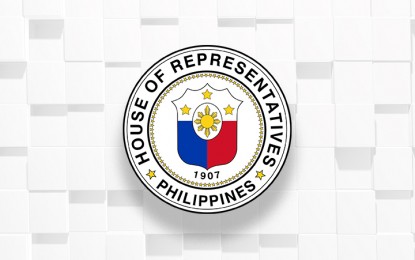
MANILA – Two party-list congressmen have urged the Department of Health (DOH), the Department of the Interior and Local Government (DILG), and the National Council on Disability Affairs (NCDA) to review the implementation of Republic Act 10754 or the Act Expanding the Benefits and Privileges of Persons with Disability (PWD).
Congressmen Ronnie Ong of the Ang Probinsyano Party-list and Eric Yap of ACT-CIS called on these government agencies to initiate a crackdown against the proliferation of PWD impersonators.
They said most businesses in the country are barely surviving because of the coronavirus disease 2019 (Covid-19) pandemic and the unauthorized use of the PWD cards to get discounts as required by the law is making life even harder for them.
Under the law, PWDs are given an automatic 20-percent direct discount and are VAT exempt on purchases of certain goods and services from all establishments for their exclusive use, among many other privileges.
While he supports the objective of RA 10754, Ong said it has become apparent that it is abused by people faking a disability to avail of discounts and privileges provided for PWDs. This is causing huge financial losses not only to many business establishments but to the government as well.
He said the law has very little safeguard against PWD impersonators and there is not even a uniform specification on the proof of entitlement, which makes it very easy for people to make fake PWD identification cards.
Under RA 10754, PWD IDs can be issued by the Persons with Disability Affairs Office (PDAO) or the City / Municipal Social Welfare and Development Office (C/MSWDO) for persons with the following types of disabilities:
• Psychosocial disability – Includes bipolar disorder, depression, ADHD, schizophrenia, epilepsy, and other long-term and recurring mental or behavioral issues;
• Disability resulting from a chronic illness – Includes orthopedic disability due to cancer, blindness due to diabetes, and other disabilities due to a chronic disease;
• Learning disability – Includes processing problems that hinder learning math, reading, writing, and other basic skills;
• Visual disability – Simple poor eyesight doesn’t automatically qualify a person for a PWD ID unless the visual impairment cannot be corrected.
• Orthopedic (Musculoskeletal) disability – Includes people with dwarfism and amputated hands or feet. Individuals with scoliosis may also apply for an ID.
• Mental/Intellectual disability
• Hearing disability
• Speech impairment
• Multiple disabilities
While some of the listed types of disabilities are obvious to the naked eye, others in the list are hard to determine and can be easily faked.
To resolve this, Ong said it is for the government to recall all old PWD IDs and issue new ones subject to full verification by either the DOH or the NCDA.
A national PWD database must also be created so that each PWD can have their own Quick Response codes (QR Codes) or machine-readable bar codes. These digital codes can contain their details that can be checked and verified online through mobile apps when claiming discounts.
“These fake PWDs are bad for businesses, especially for small ones. They are faking their disability and are abusing the PWD Law just to get discounts. Our business sector is barely surviving these days and it is the duty of the government to make sure that they are protected from these kinds of consumer abuse,” Ong said.
In February, a month before President Rodrigo Duterte declared a national health emergency, Ong and Yap organized a congressional roundtable discussion which was attended by various PWD organizations.
It was attended by representatives from Resources for the Blind, Norfil Foundation, AKKAPP PWD San Jose, Grain Foundation, Deaf and Blind Support Philippines and PWD Philippine, private companies, and associations, such as the Philippine Amalgamated Supermarkets Association to discuss the alarming proliferation of fake PWD IDs.
Yap also echoed Ong’s call for the creation of a centralized electronic database of the legitimate PWDs and a thorough vetting process must be done before anyone is issued with a PWD ID.
“The key is to develop an automated system. Through this, it will be easier to store and manage data. This system will contain all the PWD’s information, which will make it easier to verify whether an individual is indeed a PWD. All LGUs report to one centralized system so verification is easier,” Yap said.
Yap, who was the one who first raised concern about these fake PWDs, said that Local Government Units (LGUs) should strictly screen applicants to ensure that only legitimate PWDs can avail of the discounts and other privileges provided under the law.
Yap said he has received repeated complaints against persons who are not disabled but are using PWD cards to get discounts.
“The cards can be improved to have a barcode, so establishments can scan it and all their details can be viewed through the screen,” Yap said.
The two party-list congressmen also reiterated that the proliferation of fake PWD IDs is unfair for real PWDs because it unnecessarily puts a stigma against them, with some people thinking they are just feigning their disability for a discount card.
“Many establishments have grown wary over those using PWD IDs because of fake cards, and so, a crackdown ending this proliferation will finally protect our real PWDs from discrimination brought about by fake PWDs,” they added. (PR)
